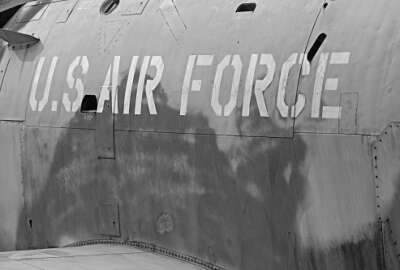
Software is Air Force acquisition’s biggest problem, Roper says
The Air Force is still trying to figure out how to make its software more agile.
Despite attempts to increase the pace of buying and developing software, Air Force acquisition chief Will Roper said speed remains the service’s number one issue when it comes to procurement.
During an April 27 roundtable with reporters, Roper, who serves as the Air Force’s assistant secretary for acquisition, repeated a familiar phrase: the defense procurement system designed to buy submarines and bombers is not made for the fast moving world of technology and software.
“Software is our big issue,” Roper said. “When you look at the programs that are hardware intensive and you look at whether they are over cost or over budget, I mean some are, but there’s not really a trend that says we’re really out of whack in this part of our portfolio. Software intensive programs are almost all over cost, over schedule.”
Roper said one of his most imperative duties in his job is to get the Air Force to a point where it can do agile software development.
Agile software development changes the way software is delivered. In non-agile software development lots of different people work on different parts of code for software and then bring all of the code together in the end.
Latest Defense News
Roper says coding is too large to do that now. Agile software updates rapidly and consistently, fixing bugs along the way.
“We’re just not accustomed, as acquisition professionals, to having deliverables on a monthly basis or on a weekly basis. We’re not accustomed to testing things, to operationally certifying things. You could imagine in a future war where we are changing software on a daily basis as a necessary factor for winning,” Roper said.
The Air Force is already making moves to better its software acquisition, but the initiatives are in the nascent stages.
Before leaving office, former Air Force Secretary Deborah Lee James instituted the Air Force Digital Service.
The Digital Service is helping with the development wavering GPS Operational Control Segment, a program that was pointed out for going more than 25 percent over its cost estimates. It’s also working on the Air Operations Center Weapons Center 10.2, which is dealing with surging costs.
The Digital Service is working to fix software development and cybersecurity issues before future development in the programs, Lt. Gen. Arnold Bunch, military deputy for the Air Force assistant acquisition secretary, said. Both programs are heavily reliant on software.
The Defense Department as a whole is also recognizing software acquisition as an issue. The new DoD Acquisition and Sustainment Office, headed by Ellen Lord, appointed its first software czar on April 16.
The job, filled by Jeff Boleng, is responsible for “providing strategic focus and overall policy guidance on all matters for defense software acquisition,” stated an April 16 release from the Pentagon.
“Boleng will formulate the Department’s software acquisition strategy, advise Department leadership on latest best practices in commercial software development, support the enterprise to build a team of top-tier software engineers, and work to develop modern software skills in the acquisition workforce,” the release stated.
Lord said back in February that she would appoint three major special assistants, one of which will oversee software.
“As we reorganize the way we do business the thread that runs through all of our programs and all that we do is software and I believe that we need to catch up with the private sector and make sure we are using contemporary software development processes,” Lord said.
Copyright © 2024 Federal News Network. All rights reserved. This website is not intended for users located within the European Economic Area.
Scott Maucione is a defense reporter for Federal News Network and reports on human capital, workforce and the Defense Department at-large.
Follow @smaucioneWFED





